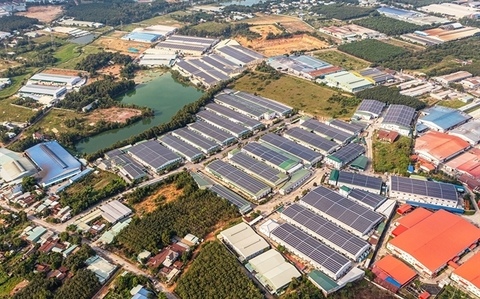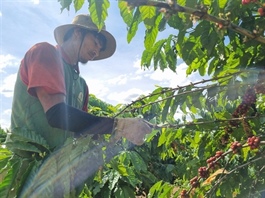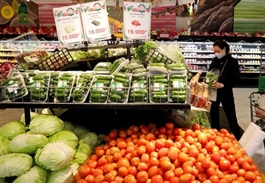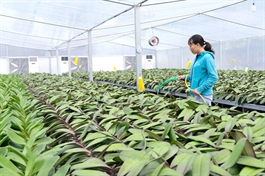'Going green' choice that could determine survival
'Going green' choice that could determine survival
Green transition is no longer a nice-to-have but a must-have for paper companies, which have been struggling to stay afloat amid weakening global demand.

Green zone of an industrial park in Bac Tan Uyen District, Binh Duong Province. — VNA/VNS Photo |
Dang Van Son, secretary-general of the Vietnam Pulp and Paper Association, said 2023 would be a tough year for paper companies as slumping orders had caused a severe supply-demand imbalance in the market.
He estimated paper production at eight million tonnes per year, which was in excess of consumption (six million tonnes per year). The situation could be worse in the short term as the sector was forecast to produce three million more tonnes per year by 2025 due to overcapacity.
"The fall of 12 per cent in exports in the early months of this year has sapped the consumption of paper packaging, which accounts for 85 per cent of the aggregate paper consumption," Son said.
Luong Van Thanh, chairman of Donghai JSC in the southern Ben Tre Province, said orders for paper-based cardboard fell by 15 per cent in the early months of 2023 as fruit exporters, which use cardboard for packaging, had been hit hard by the slump in demand.
"Paper prices fell from VND12,000 (US$0.5) to VND8,000 per kilo. I reckon that the situation would remain tough for the rest of this year," Thanh said.
And the situation was not better for Dai Thanh Production and Development Trading Co. Ltd., which saw orders drop by 30 per cent in the same period. Remarkably, its paper tissues were undergoing a substantial drop in consumption.
"We sold around 100 tonnes of tissues per month in the past. Now, the figure has plummeted to around 30 tonnes," said the company's director.
Secretary-General Son believed that 'going green' could be a real lifesaver for paper companies under the current situation because customers have become more environmentally conscious than ever.
"Customers are shifting their buying patterns in favour of green producers. Those that fail to follow the trend would end up being out of favour," Son said.
Scores of paper companies are aware of green consumerism and they have sprung into action to turn the changing consumer behavior to their advantage.
For instance, Donghai JSC has upgraded its water treatment facilities to improve its water-use efficiency. The green actions have won favour with climate-conscious customers, allowing the company to maintain its customer base amid the economic downturn.
Tetra Pak, another company in the sector, has gone as far as to upgrade their factories to international green standards. The move has enabled the company to gain ground at home and abroad, especially in Australia and New Zealand.
"Green companies have a big advantage over brown ones in the international market. 'Going green' has become a matter of life and death," Son added.
The secretary-general urged paper companies to focus on recycling scrap paper to score more points with environment-conscious customers. He also said paper recycling is highly beneficial to the environment as it reduces the number of trees being cut down for paper and the volume of waste being discharged into the environment.
























